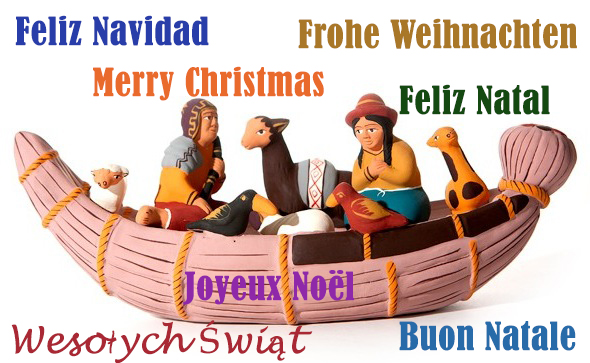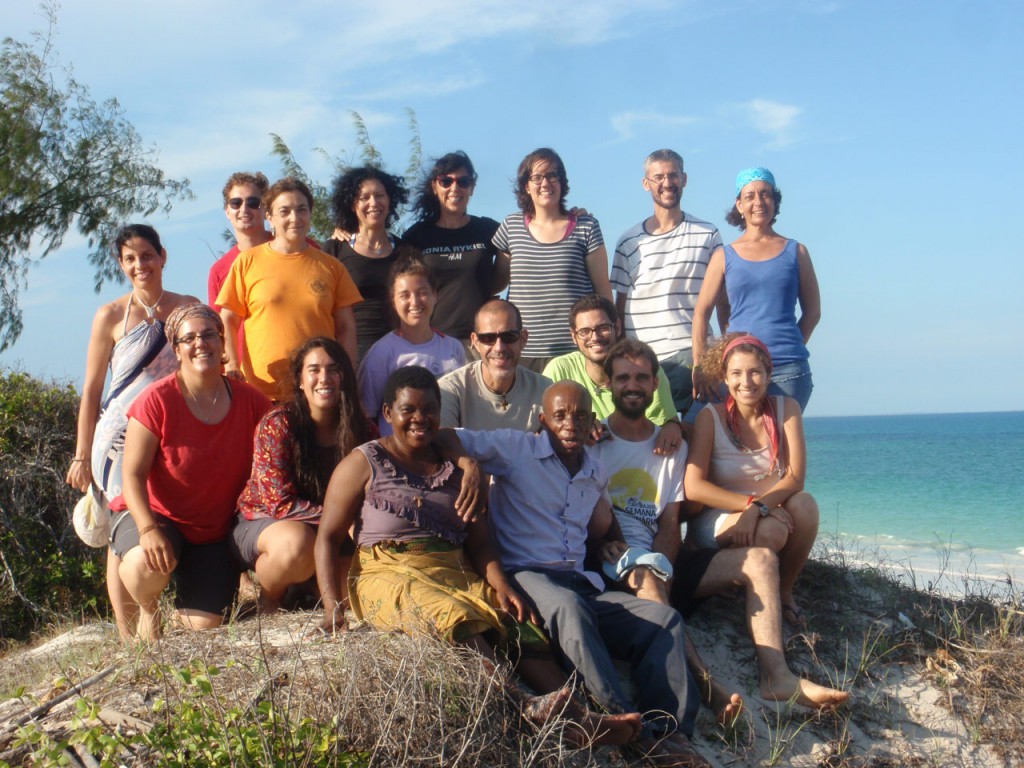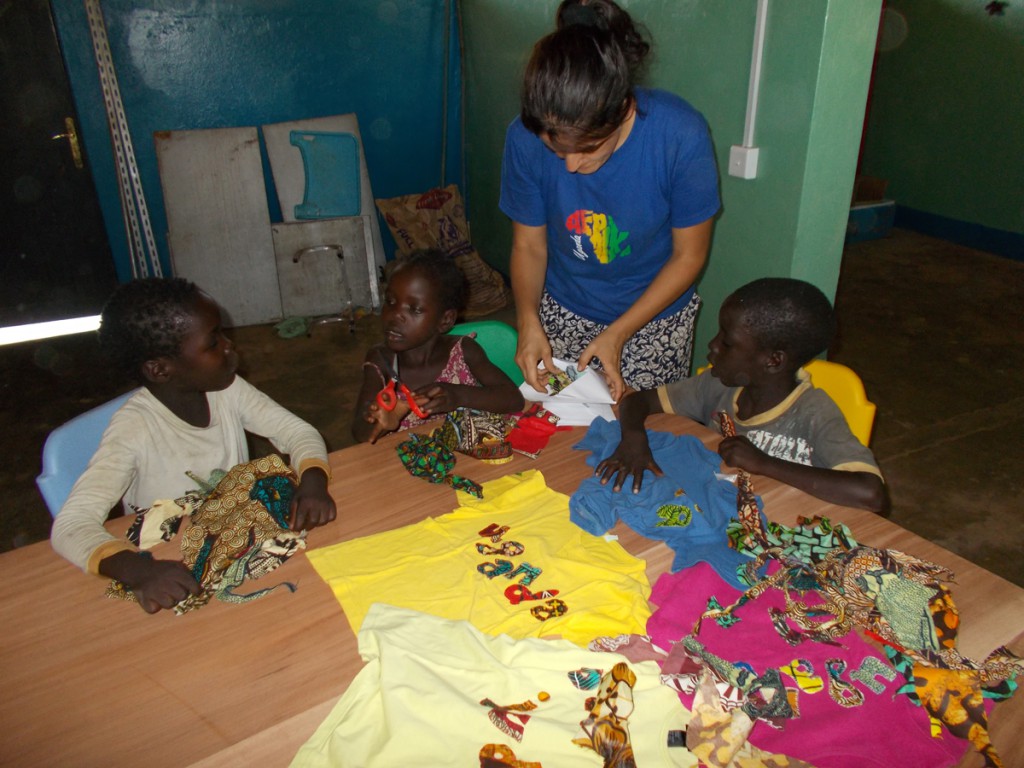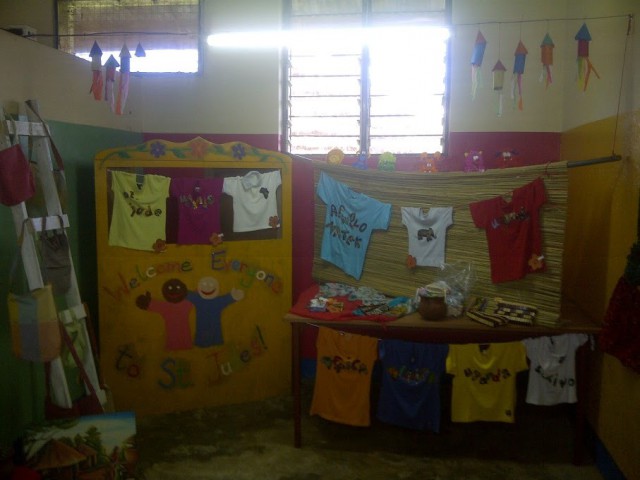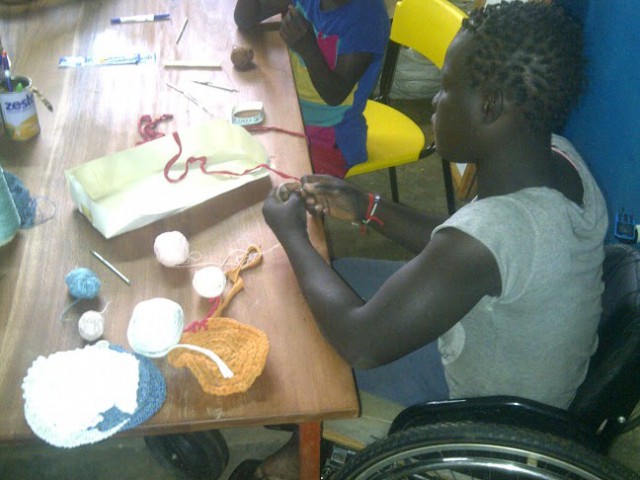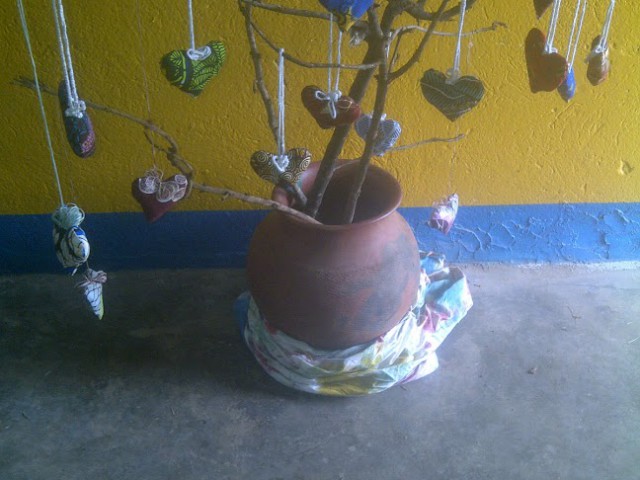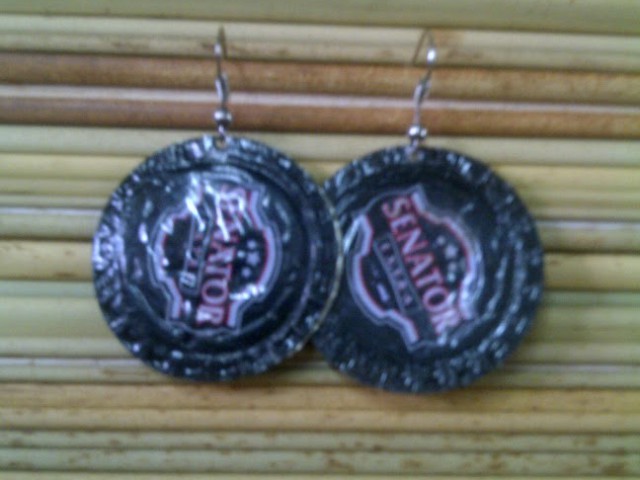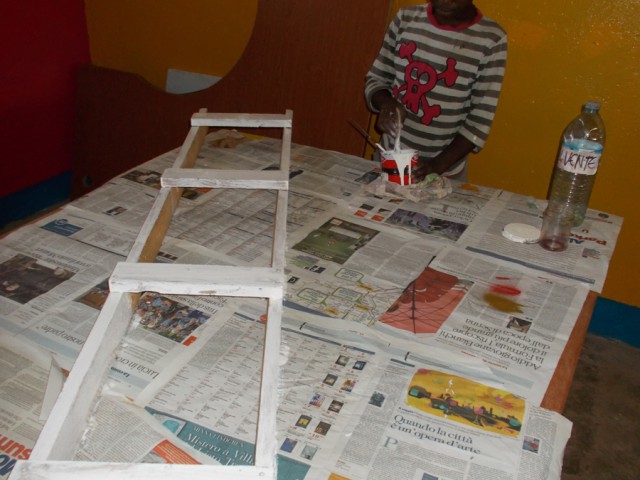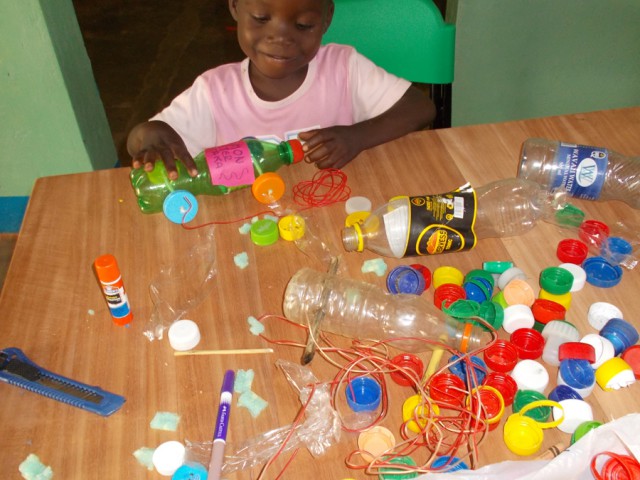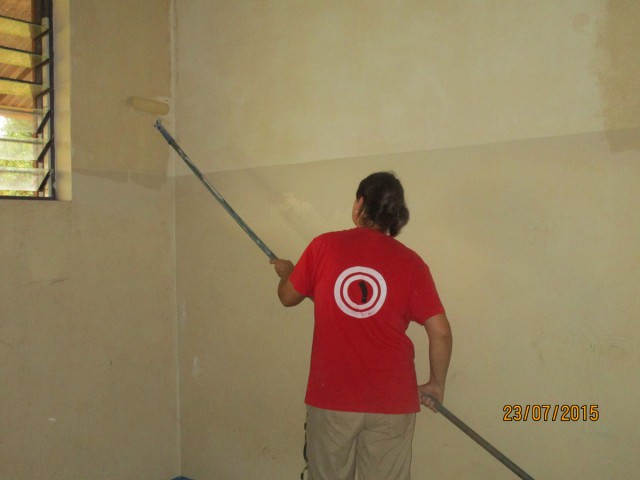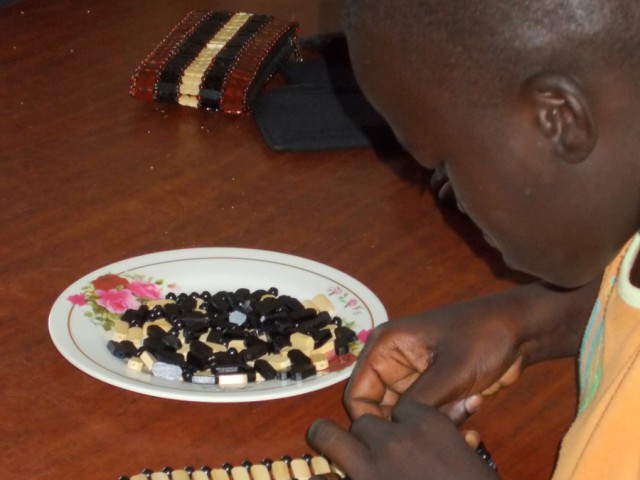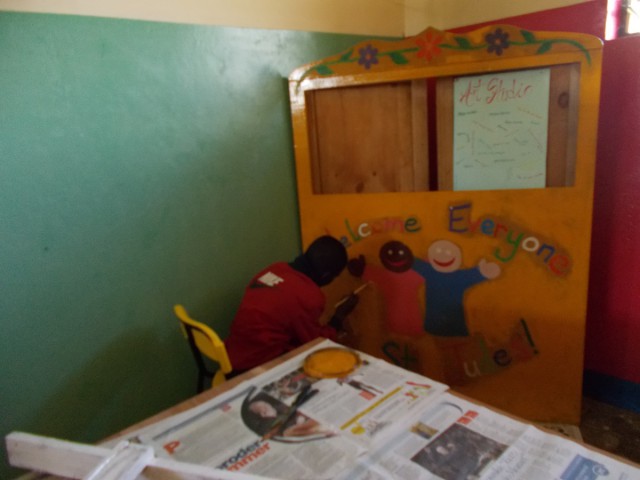English
Missionary retreat in Mozambique
The Missionary laity of the diocese of Nacala met on December 7 to celebrate Advent retreat.
Attended 16 lay people from the various missions of the diocese. Fr. Damasceno, Spiritan present in the mission of Itoculo, led the retreat.
In the morning after our arrival, we made an initial prayer reflecting on the transforming power of love and Fr Damasceno invited us to use it to change what closes us on ourselves, remembering that Advent is a favorable time for this.
Then p. Damascus helped us to reflect on the Gospel of the second Sunday of Advent, and to see that, after describing the “powers” of the world, political and religious, he concludes with the assertion that the Word came to John in the desert. God reveals His word to the little, in the forgotten places. So we are invited to retreat to the desert to hear God! The desert is the privileged place of God’s relationship with his people. It also proposes some questions to reflect on our missionary experience, challenging us to review some attitudes and commitments.
After lunch, to continue the reflection, we chose the beach, a quiet and peaceful place, which gave us the contact with nature, a magnificent work of God. This environment well-lit reflection in the afternoon, bringing the second reading of the 3rd Sunday of Advent, the Sunday of joy. “Rejoice in the Lord always!” A relationship with some of the paragraphs of the encyclical “Laudato Si” and also some excerpts from the life of St. Francis of Assisi.
In the afternoon, returning from the beach, as we celebrate the closing Mass of the day, where also, at the time of Thanksgiving, there was the farewell of 5 laity who returned to their home-lands: 3 Spanish Vincentian lay, Cristina, Nina and Virginia, a Comboni lay Portuguese Márcia and a Brazilian Comboni lay Flávio.
The meeting ended with a dinner and fellowship, in the joy of waiting for the Lord’s coming!
Good experience of Advent to all!
Flavio Schmidt, CLM
Land Grab and Just Governance in África
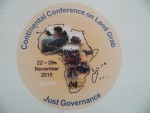 Land grabbing and just governance discussed in a unique pan-African conference starting today ahead of Pope’s visit to Africa.
Land grabbing and just governance discussed in a unique pan-African conference starting today ahead of Pope’s visit to Africa.
The conference will highlight the state of land grabbing in Africa, cases of resistance across the continent, as well as Church responses and its increasing engagement on issues of land grabbing.
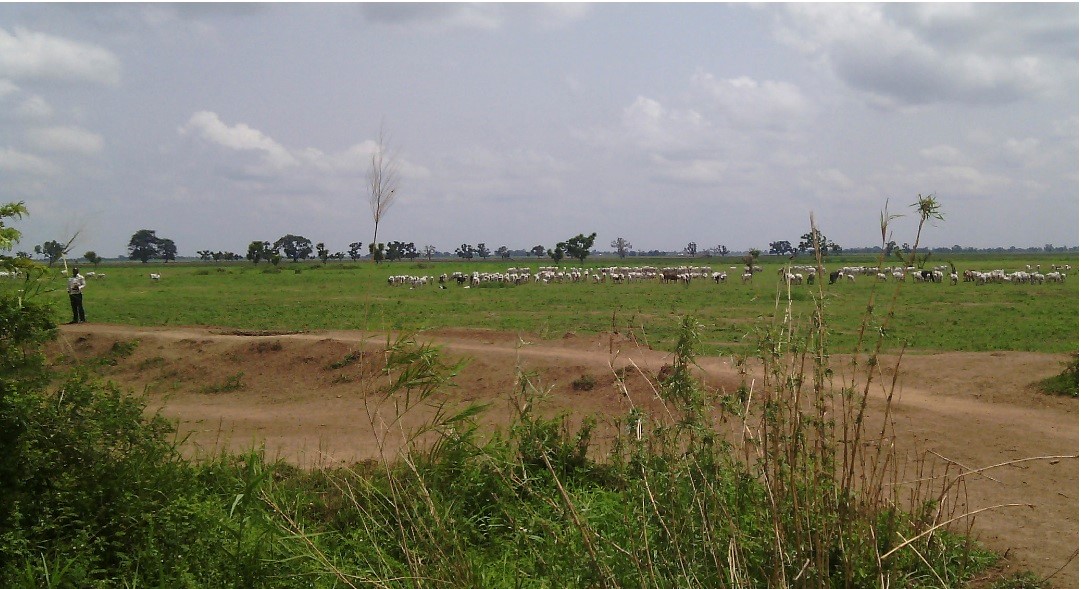
Land grabbing is a serious problem across Africa, requiring urgent attention since it threatens livelihoods and food security. It has already dislocated hundreds of thousands of people from their lands, deprived them of natural sources, and threatened their livelihoods.
Land grabbing and just governance, issues that constitute a significant threat to food sovereignty, will be discussed at the conference “Land Grab and Just governance in Africa”, opening today in Nairobi, Kenya, and organized by SECAM (Symposium of Episcopal Conferences of Africa and Madagascar) with the collaboration of AEFJN (Africa Europe Faith and Justice Network), AFJN (Africa Faith & Justice Network) and CIDSE (network of Catholic development agencies). The event will gather about 150 participants from the African continent and beyond, including many people directly involved in land grabbing struggles.
Land grabbing is most often described as the acquisition of large areas of land in developing countries by international firms, governments, or individuals. In recent years land grabs have increased following the worldwide spike in food prices in 2008, prompting investors to look toward the Global South, particularly Africa, for potential land investment to produce food and biofuel for export and international markets. Large tracts of land are also being acquired for speculative purposes, known as “land banking”, where the buyer holds the land and sells it later.
Among the cases that will be presented during the conference is the one involving the Italian project Senhuile SA, which has leased 20.000 hectares of land in the Ndiaël Reserve in Senegal, land used for decades by residents of some 40 villages in the area. This resulted in an ongoing conflict with the villagers, who want the project stopped. The case of farmers in Nigeria’s Taraba State and in Kenya, who are being forced off lands that they have farmed for generations to make way for US company Dominion Farms to establish a rice plantation, will also be a subject of discussion. Cases involving Bollore land deal in Cote d’Ivoire, Cameroon, Liberia as well as in Sierra Leone and cases from Mozambique, the Democratic Republic of the Congo and Mali will also be showcased.
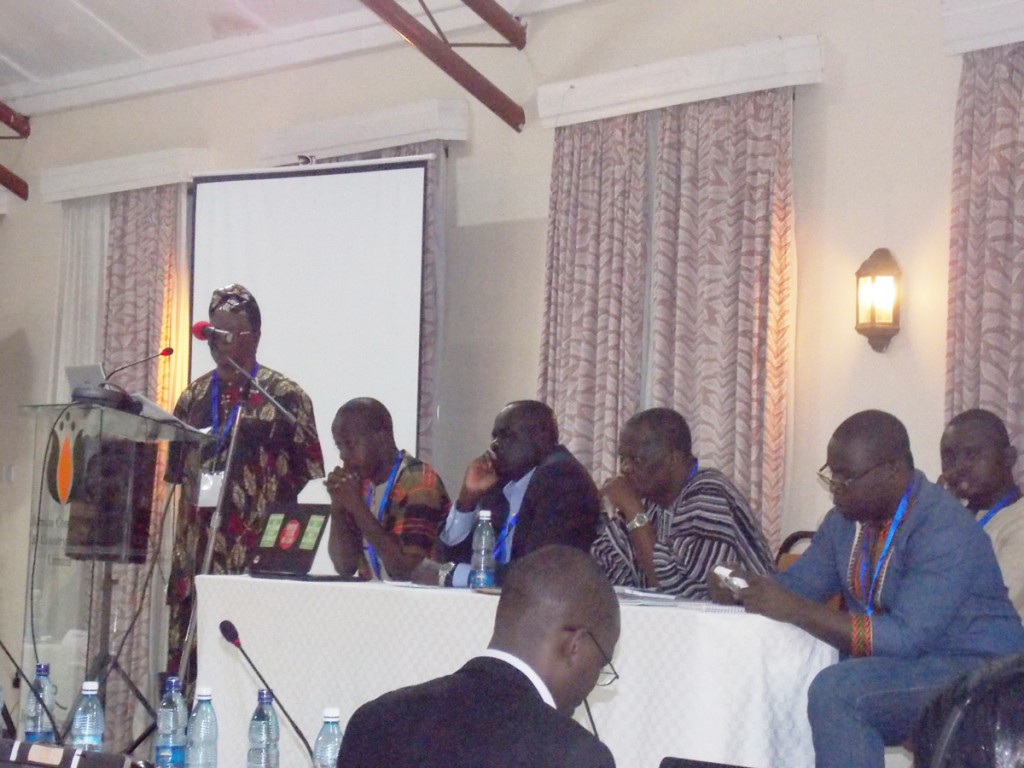 This conference takes place ahead of Pope Francis’ visit to Kenya, Uganda and Central African Republic. The Pope has previously voiced great concern about the issue of land grabbing. In a speech delivered at the UN Food and Agriculture Organisation in Rome in June 2015, Pope Francis warned against the “monopolising of lands of cultivation by trans-national enterprises and states, which not only deprives farmers of an essential good, but which directly affects the sovereignty of countries”. The Holy Father also pointed out that: “There are already many regions in which the foods produced go to foreign countries and the local population is doubly impoverished, because it does not have food or land”.
This conference takes place ahead of Pope Francis’ visit to Kenya, Uganda and Central African Republic. The Pope has previously voiced great concern about the issue of land grabbing. In a speech delivered at the UN Food and Agriculture Organisation in Rome in June 2015, Pope Francis warned against the “monopolising of lands of cultivation by trans-national enterprises and states, which not only deprives farmers of an essential good, but which directly affects the sovereignty of countries”. The Holy Father also pointed out that: “There are already many regions in which the foods produced go to foreign countries and the local population is doubly impoverished, because it does not have food or land”.
Further guidance and indications in relation to the dangers of land grabbing were expressed in the Pope’s Encyclical letter Laudato Si’, in which he denounces an exploitative approach towards land while recalling: “For them (indigenous communities), land is not a commodity, but rather a gift from God and from their ancestors who rest there, a sacred space with which they need to interact if they are to maintain their identity and values. When they remain on their land, they themselves care for it best. Nevertheless, in various parts of the world, pressure is being put on them to abandon their homelands to make room for [industrial] agricultural or mining projects which are undertaken without regard for the degradation of nature and culture.” (146). In support of Laudato Si and ahead of the climate conference COP 21 in Paris, the bishops’ conferences across the world signed on the 22nd of October an appeal which called for COP 21 “to ensure people’s access to water and to land for climate resilient and sustainable food systems, which give priority to people driven solutions rather than profits.”
The conference aims at developing strategies to support and strengthen local communities in their struggles to stop this menace and to build resilience.
“Coloring Africa”
How easy it is to enjoy doing nice things, creating, inventing and “building” from our imagination and the materials we have around.
In St. Jude Orphanage, has appeared “Art Studio” a place prepared by my Spanish friends who came to visit us this summer and cleaned, ordered and painted a warehouse, and then transform it into a beautiful place.
It was a dream that came true, because due to my “artistic branch” I wanted to do something “different and nice” with the children of the orphanage. Sometimes with older (14 or 15 years) communication it is not easy because they are in that difficult age, where they reveal a little against everything. I was sure that through these activities communication would be simpler, and so it proved.
Many ideas in my head, a lot of time collecting precious African scraps from the market, collecting plates and seeds, plastics, bags, and keeping them patiently, wanting to do fun things with all the material.
It is an artistic laboratory where we get together to work making purses, pocketbooks, earrings, bracelets, and other things that will be discovering as we go finishing (because different ideas continue to emerge). We listen to music, talk, and the best is to see the result on the beautiful store that has emerged after two months of work.
The aim is not only selling, even thou it is always important to get some money to help us every day, which is not easy.
We wanted the kids to have the chance to work with imagination and creativity, elements that I think are important for the development of the person. We do not wanted to get together only to make bracelets, but see a table full of things and think “where can go from here?” Propose, inventing, and why not … dream a little.
Before starting, I asked God for patience to explain the kids how to work and also asked to convey my enthusiasm, because the most excited about this was me, and I think I’m still the one J.
The results are wonderful, and I must say we have surprised everyone, including Brother Elio, the director, workers, and people who come to visit the orphanage, have been delighted with our little artistic corner.
The work of course are divided according to age, some are dedicated to stick hammered sheets plates and let them flat, others cuts letters, others uses glue, scissors, others joins balls with elastic … but what it is the best It is that we are really enjoining, and we all love seeing the result of our work.
When they realize they can do beautiful things, become proud and want to do more, and the fact of seeing them “exposed” in our beautiful store, makes them feel important.
So now, if you come to visit St. Jude Orphanage in Uganda, apart from playing with the children, go for a walk with the kids who are in wheelchairs, read and paint, run, and do all sorts of things that can occur with 100 children together, you will have to go through our “Art Studio”, first to see how well they work, and second, of course to buy some souvenirs in our shop.
We wait for you!
Carmen Aranda CLM
Ghana CLM aspirants meeting
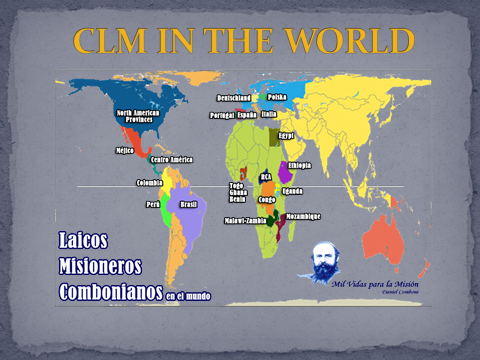 This 14th November, we met at Abor for our formative meeting.
This 14th November, we met at Abor for our formative meeting.
At the beginning, we prayed the Lauds and meditated upon a letter of St Comboni to his parents (Writings n.55- 62). After this, we had a presentation about the History of the CLM family. The presentation was based on the one that Alberto de la Portilla presented at Kinshasa at our second Continental Meeting. The presentation first talked about the various CLM international meeting with their conclusions. The main one is the one of Ellwagen in 2006. The continuation shows the readiness of the MCCJ to journey with the lay people. The last step is the showing of the various CLM groups in the world with their way of life.
After this, we discussed a little bit about the selling of the magazine New People. The coordinator insisted on the availability of each member to commit himself in responding to our CLM vocation. We talked also about the commitment at our various places.
The prayer and our community food ended the meeting.
After the meeting, we were informed of the appointment of a new Chaplain for the group in the name of Rev. Fr Philip Zema, mccj. We thank the Provincial and His Counsel for their attention and readiness to help us grow in our vocation.
Justin Nougnui, coordinator.




